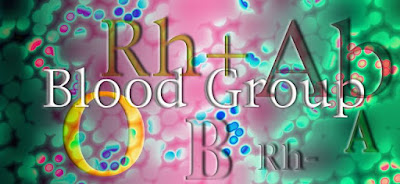The Blood Type Diet
The blood type diet is an eating plan sometimes used in alternative medicine to promote weight loss. Also said to fight disease, the blood type diet is based on the theory that your blood type determines which foods you should consume in order to achieve optimal health.
What is the History of the Blood Type Diet?
The blood type diet was developed by Peter D'Adamo, a naturopathic physician who theorizes that people respond to various foods depending on their blood type.
The theory behind the diet is the belief that eating foods with lectins (a type of protein) that are incompatible with a person's blood type can cause blood cell clumping, called agglutinization, and result in health problems such as heart or kidney disease or cancer. D'Adamo also theorizes that a person's blood type affects their ability to digest various foods due to differences in digestive secretions associated with the different blood types. Blood type O, for example, are thought to digest meat well due to high levels of stomach acid.
By eating according to a meal plan designed for your specific blood type, D'Adamo suggests, you can digest food with greater efficiency, avoid the negative effect of certain lectins, and—in turn—lose weight and enhance your overall health.
What Does the Blood Type Diet Involve?
Here are the basic principles of the blood type diet:
- People with blood type A (which D'Adamo calls the "cultivator") should follow a dairy-free, primarily vegetarian diet with a high intake of fruits, vegetables, grains, beans, legumes, nuts, and seeds
- People with blood type B ("the nomad") should eat a highly varied diet (including fruits, vegetables, grains, beans, legumes, meat, poultry, fish, eggs, and dairy) but avoid intake of nuts and seeds
- People with blood type AB ("the enigma") can consume any food recommended for blood types A and B, although aiming for a mainly vegan diet is advised for this type
- People with blood type O ("the hunter") should stick to a dairy-free and grain-free diet high in meat, low in grains, and with a moderate amount of vegetables, eggs, nuts, and seeds
Overall, the blood type diet emphasizes whole foods and minimizes intake of processed foods.
The blood type diet also includes exercise guidelines. For example, relaxing exercises like yoga and tai chi are recommended for blood type A, moderate-intensity activities like walking and tennis are recommended for blood type B, a combination of calming and moderate-intensity exercises are recommended for blood type AB, and vigorous activities like running are recommended for blood type O.
The Benefits of the Blood Type Diet
Proponents claim that the blood type diet can help you burn fat more efficiently, increase your energy levels, stimulate your immune system, promote weight loss, and lower your risk of major health problems like heart disease and cancer. However, there's currently a lack of scientific evidence to support such claims.
The available research on the blood type diet includes a study published in the journal PLoS One in 2014. For the study, 1,455 participants filled out questionnaires designed to determine how frequently they'd consumed certain foods during a one-month period.
In their analysis of the questionnaires, researchers found that following a diet similar to the diet prescribed for blood type A or blood type AB was associated with lower blood pressure and lower cholesterol levels. Following a diet similar to the diet prescribed for blood type O was associated with lower levels of triglycerides (high levels of this blood fat have been associated with an increased risk of cardiovascular disease), while no significant association was found for the blood type B diet.
Since these associations occurred independently of the participants' blood types, the study's authors state that their findings do not back up the overall theory behind the blood type diet.
While this study suggests that the blood type diet may have beneficial effects for some individuals, a research review published in the American Journal of Clinical Nutrition in 2013 found that further research is needed to support any of the health claims associated with the blood type diet. For the review, scientists looked at 16 previously published reports on the blood type diet and concluded that "no evidence currently exists to validate the purported health benefits of blood type diets."
Caveats
Since the diets prescribed for blood types A and O are very restrictive, there's some concern that individuals following these diets may fail to achieve sufficient intake of many vitamins and minerals that are essential for health. Although proponents of the blood type diet suggest that use of dietary supplements can help dieters meet their nutritional needs, such supplements are not regarded as a reasonable substitute for a healthy, balanced meal plan.
Trying the Blood Type Diet
While the blood type diet may offer some benefits in certain cases, following a health regimen that combines sensible calorie restriction and regular exercise is generally considered the most effective strategy for weight loss. If you're considering trying it, make sure to talk with your primary care provider first.
Sources
Cusack L1, De Buck E, Compernolle V, Vandekerckhove P. "Blood type diets lack supporting evidence: a systematic review." Am J Clin Nutr. 2013 Jul;98(1):99-104.
Wang J, García-Bailo B, Nielsen DE, El-Sohemy A. "ABO genotype, 'blood-type' diet and cardiometabolic risk factors." PLoS One. 2014 Jan 15;9(1):e84749.
Disclaimer: The information contained on this site is intended for educational purposes only and is not a substitute for advice, diagnosis or treatment by a licensed physician. It is not meant to cover all possible precautions, drug interactions, circumstances or adverse effects. You should seek prompt medical care for any health issues and consult your doctor before using alternative medicine or making a change to your regimen.
 RSS Feed
RSS Feed Twitter
Twitter

























 3:14 PM
3:14 PM
 Unknown
Unknown

 Posted in
Posted in 